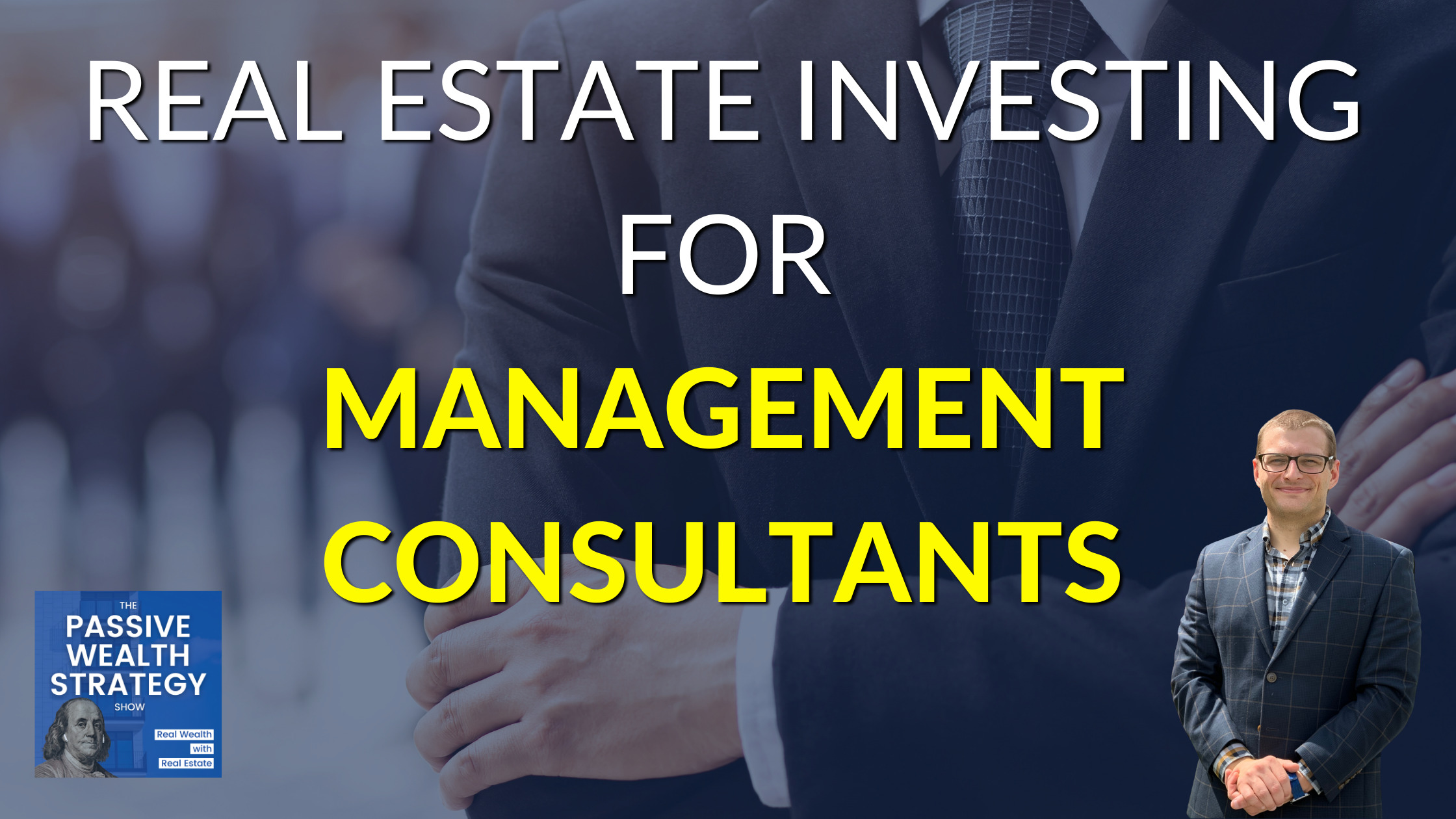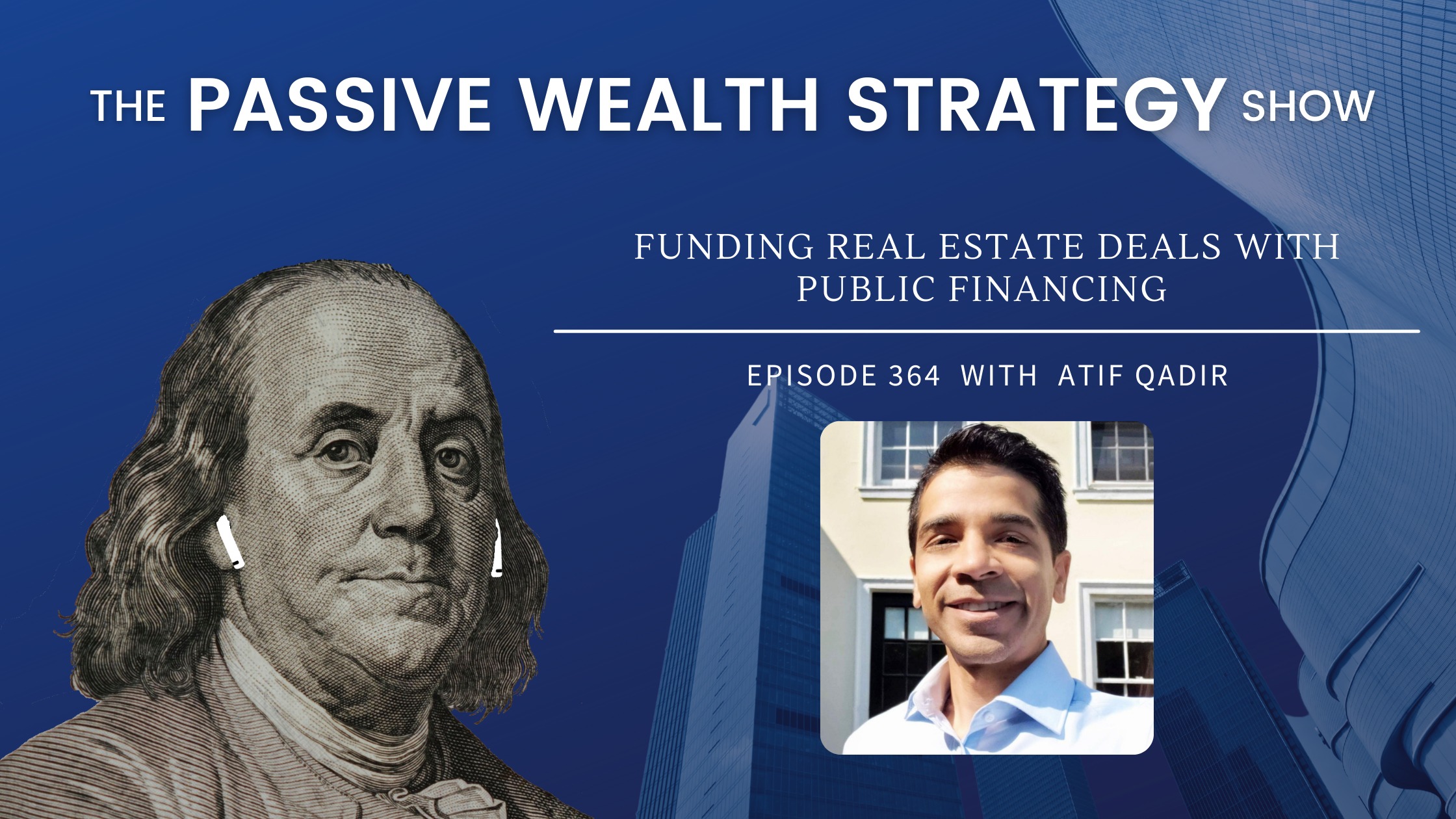
Funding Real Estate Deals with Public Financing with Atif Qadir
Thank you for joining us today.
Thank you so much for having me, Taylor.
It’s been such a great wide-ranging conversation, and I’ve realized I’m gonna use up this guy’s whole evening. If we don’t record an interview here for our listeners and for Alyssa that out there who don’t know about you and what you do, could you tell us a bit about your background and what you’re up to these?
Sure. So I’m an architect by training. And what I’m doing right now is I lead a startup called. So what we do is we’re focusing on making it easy for commercial real estate brokers, developers, and investors to make use of all of the public financing tools that are available to them. For the projects that they do.
That’s a venture-backed startup based in New York City. And then previously I started a development company that focused on historic redevelopment projects in Northern New Jersey. And it was through the projects that I did there that I realized how important, but how underutilized public financing tools are.
And that’s what led me to start the startup that I just mentioned.
Awesome. I like to dig into, really what you’re helping people do. And the scale of the problem that, that is out there.
Sure. So, I would say I would begin and end this with a hundred billion dollars. So a hundred billion dollars.
That’s the estimate of the amount of money that’s given out through different public financing mechanisms every year in the United States, at the federal, the state, and the local level, taking a step. Public incentives are, have been a part of political and economic life in the United States since reconstruction, after the civil war.
And it’s ballooned to the size that it is based on this hypothesis that public resources. So taxpayer-funded resources from Taylor, from myself from your listeners should be used to fund private economic activity in the area of interest for us. It’s real estate. To deliver public social good.
And some of the most common ones are affordable housing downtown revitalization, job creation, and then more lately transition to climate responsible building policies and building methods. So that’s the scale. This was a hundred billion dollars is what we’re talking about.
And in particular, from my own experience and the experience of. Team when they all worked at other real estate companies in New York we saw that it is extremely difficult to find big incentives that you are eligible for. And then if you’re able to find them to be able to use them to their effects to the means that’s most effective for you.
So that’s the scale and the breath it’s actually. Breathtaking the amount of money that this niche encompasses and also breathtaking how badly it’s done.
So presumably the way it’s done now. I don’t know, but it sounds like it’s the government allocating these funds and then also the government trying to figure out how to properly distribute them, which governments are oftentimes bad at.
I guess walk us through how it’s done now and then how you envision. Changing how these things happen.
So a lot of it comes down to these two, the value proposition is based on this idea of finding and using. So find and news is the two parts of a value proposition.
And the way it’s currently done is a piece of legislation makes its way typically through Capitol hill or in other cases through state capitals. And it’s deemed by legislators to be useful and worthy. It goes to that process it’s approved. And then a particular agency is put in charge of the actual allocation of The amount of money that’s put towards a particular program and defining how it’s done.
And that’s done typically through a waterfall of agencies at the federal, the state, and the local level, and then administrators at those agencies are responsible for the delivery of that money to worthwhile parties, and then the management or the review of that process over time. And with each of these iterations, in terms of the story, there are more and more opportunities for a lack of.
There are more and more opportunities for lack of preparation of information in a way that people can access it and use it. And there are more and more opportunities for there not to be. The money not going to the place that it should be going to. And I think the result is that some areas, some places, some types of construction are over incentivized and some areas don’t have the benefits and the access to public financing that they should.
And a lot of what we’re focusing on is first the finding aspect. So being able to say to someone, regardless of where you are, What your economic background is, you can identify the incentives that you are eligible for at any point in the stream from federal state to the local level. And then from there being able to use, and for our use encompasses two particular things.
It means applying efficiently to these incentives and it means being able to receive a tax credit. So tax credits or the, probably the market. Vehicle of public financing. And they’re so interesting on their own because they’re the one type of incentive that you can syndicate. And what that means is that you can sell that tax credit to raise current funds to build or develop or redevelop the property that you have as an owner.
So that’s the full kind of storyline of the way it currently is done and why it doesn’t work and what we’re looking to do to change. A paradigm.
Awesome. And this use of the word syndicated is something I had to get used to a few years ago. When I first learned about this as different from the raising capital strategy, we don’t talk about what we might use, the word syndication.
Yeah. The difference is this. So syndication is, I’ve heard used in three different contexts in real estate. So context number one is, as the principal, you syndicate the equity to several different LPs. That I’ve heard that used syndication. Number two is when banks are looking to lend on commercial real estate and their lending capacity, either on a single deal basis or on an entire annual.
A total leverage basis relative to their depository accounts doesn’t allow them to do the full loan on their own they’ll syndicate to other banks. So I’m an advisory board member of Provident bank, which I believe is the largest community bank in New Jersey. So I’ve gotten familiar with that second version of what we just talked about.
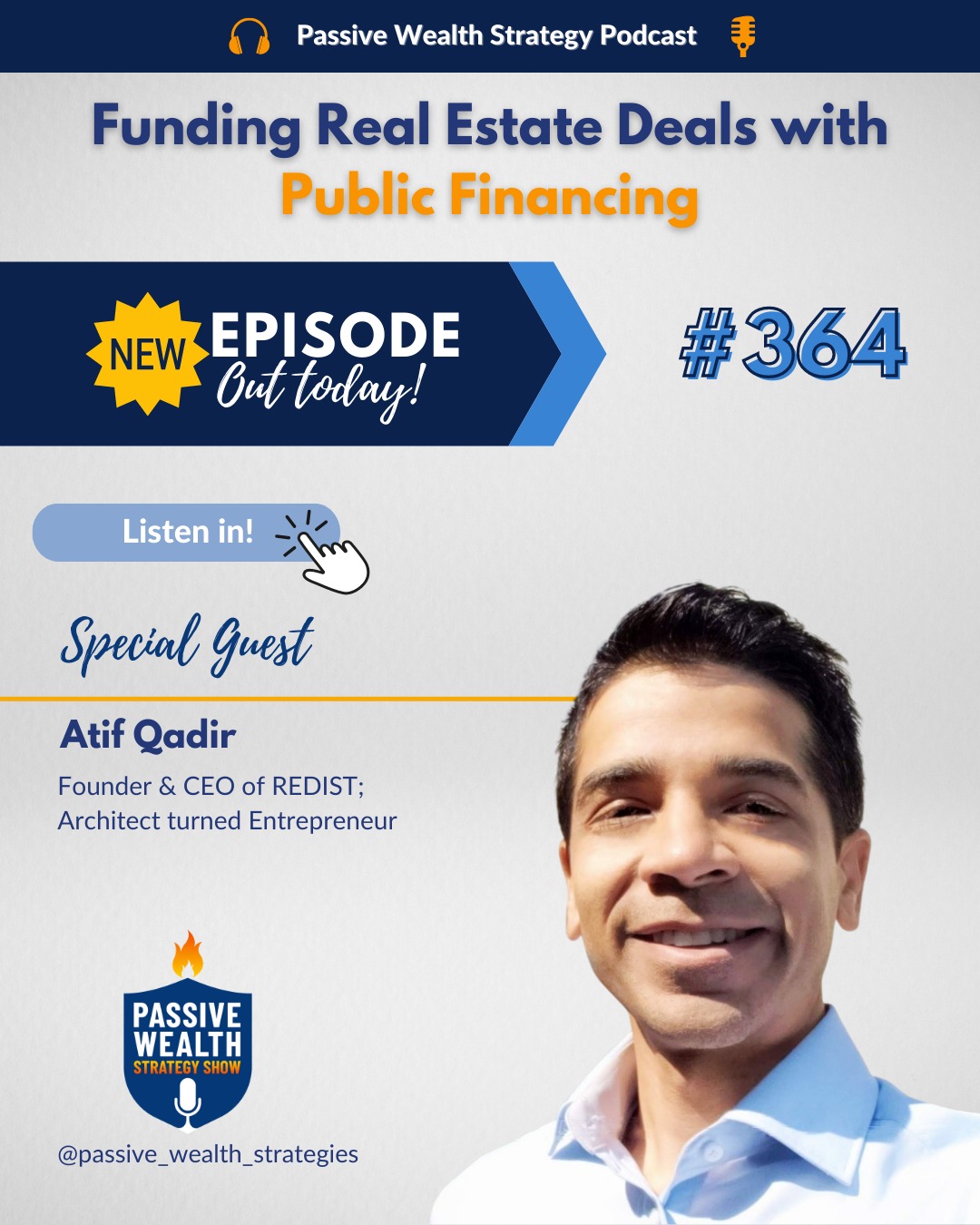
Funding Real Estate Deals with Public Financing with Atif Qadir
The third one, which probably many of your listeners may not have heard of, or are not familiar with is the idea. A developer or an investor through an intermediary. Who’s a syndicator of tax credits can sell those tax credits at a discount typically 80, 85 cents on the dollar to raise that money upfront for them to use for the development activity that they’re pursuing the most common the biggest flagship programs in the United States Lytec, which is 9 billion-plus or minus.
Ben’s historic tax credits, which is plus, or minus 6 billion at six and a half billion every year. And then it’s new market tax credits, which is 3 billion a year. Those are the largest three tax credits that are all three or normally syndicated through a structure like this.
Okay. So, from a real estate investor standpoint, what do you see as the best ways to play on this?
You mentioned, it mentioned a few ways and we’ve talked about, historic properties and all that. What are you seeing as the best routes for investors to get started in this?
So I would say it depends on the scale of the work that they’re doing and the projects they’re pursuing right now on the smallest scale.
So those are probably you’re small to midsize. I think the, sometimes industry is called SMB type developers. That’s more of a tech term. It’s not used our industry that much SMB but small to medium-sized business that those types of companies, honestly, There’s not much for you to do until we’re up and running in a couple of months then go at it.
And I think there are many opportunities for SMBs to be able to make effective use of this at this, but it’s more mid to large size companies that have the financial wherewithal to pursue these incentives through the normal means, which are their expensive lawyers are specialty consultants.
They can generally define and pursue a strategy that makes sense for them economically and takes advantage of incentives that are available to drive their returns. So say for example, like if you live in a place like Richmond, very historic it’s downtown has lots of interesting, beautiful buildings.
That historic tax credits. If you’re able to understand all the intricacies of them and then be able to take advantage of them are a rather lucrative avenue for you to pursue to juice the returns of the projects that you would be interested in doing anyway, because the downtown’s cool people are moving to Richmond.
That’s generally a very interesting strategy. Another one would be if you are looking to focus in areas where say rents aren’t that high and you think there’s a strong need for affordable housing that you’re able to take advantage of low-income housing tax credits and following all the minutia, all the technical requirements and all of the onerous compliance requirements.
If you’re able to figure out all that. More power to you, but being able to pursue all of those for your affordable housing projects, and there are other iterations of these that I could describe, but those tend to be the two most common is basically defining a particular strategy that makes sense for you economically and operationally, and being able to utilize these tax credits to move projects over the line, or to make those that are marginal become a much.
Nice. So as a startup founder, that’s working on making this space, maybe more transparent. Isn’t exactly the right word, but easier to work in, for you investors and make sure these deals happen more effectively. How do you envision accomplishing that? Because at the end of the day, you’re still working with the government or governments.
Yeah. A lot of the challenge isn’t going to be, or a lot of the challenge can be solved through the means that we’re talking about, which is the aggregation and the curation of data. The ability to use technology to simplify and speed up the application process and use syndication in for a vastly larger array of tax credits than currently are syndicated.
All of those. Eliminate certain hurdles, but there still is the reality. You do need to apply the money’s not going to come for you from heaven and you still need to build that building. That’s not going to happen overnight. And you still need to make sure that you follow up with all the compliance stuff and we can make it all easier, but it’s not going to ever be like a snap of a finger.
So I think that all of those difficulties will still exist, but to be honest, those are all ones that. If you’re competent and you’re in our industry, you’re familiar with anyway, there’s always the reality that, probably the thing that I learned as a real estate developer is that being a developer is not just being, but being a developer, it’s also being a janitor.
It’s also being a babysitter. It’s also being a friendly neighbor. It’s all these things that you need to do anyway, that people, in our industry are familiar with. But I think the idea is now bringing that difficulty level down from here to here, which is something that people are more capable and more. And find more reasons to go with.
Okay. So for your company, like where are you playing in on this process? Is that connection, and then are you involved all the way through, the ultimate syndication of the tax credits or you’ll walk us through the whole life cycle of one of these deals?
I would say this is that it’s important to remember.
Huge this niche is and how underserved it is. But also that there are well-funded players in this arena already. So I think for us, it’s about identifying what particularly are the places where we can have the most impact in terms of geography, in terms of tax credits and terms of particular services that we’re providing and we are, it’s still, we are venture-backed, we raised two and a half million dollars.
We have eight people, but we’re still a relatively young company in the grand scheme of things. And I think from that perspective, What we’re saying in some parts is hopeful, because we hope to get there. And some parts of it’s performative and has been done already and now we’re refining it. So for us, we would what we believe is needed in our industry as an end-to-end solution, which makes public financing something that is seen as a tool, as opposed to a burden.
For people who are in our industry and that’s something we want to work towards to be able to make sure that all the different pieces that are necessary to vertically integrate that or vertical integration is it’s done.
Interesting. Okay. So I’m curious about also the process. Starting a startup and getting into venture capital.
It sounds like venture-back startups because I don’t know your whole history, but it doesn’t sound like we’ve done startups in the past. Tell us about starting a startup and getting started working with venture capital investors.
So I’m a real estate guy, no matter what anyone asks me, I’m always going to say I’m a real estate guy.
I’m not a tech guy. And I think it’s really simple. To understand the differentiation, I feel like anyone that’s been in our industry for a minute, they’ve come to realize that innovation in our industry is often something. We’ve chosen to outsource, and I think it’s not a point of pride.
It’s actually, it’s an embarrassment that the first wave of innovation and industry, where for Pete, from people that are outside of our industry. So to some, somebody that worked at Google and is oh, I can fix the largest industry in America. Real estate or someone that worked in McKinsey or Goldman Sachs, and somehow imagined that they could fix all the problems with our industry.
And I think that there is a second generation of folks that are saying, you know what? I don’t want to go down that path of becoming an AVP then a VP then MD, then a partner at Tishman Spire, and getting the golden handcuffs and never leaving. And that’s like the highest calling of anyone that goes to a business, like a fancy business school or.
Or works at a fancy company. I think there’s the next generation of folks that are real estate guys and real estate gals. They’re saying, I know how we do it, and I know why it’s all messed up. This is the particular part of the messed-up process, but I want to make it better. And I think there’s a business that we can make it.
MI along with some other real estate, people are going to come up with that solution. We’re going to bring in the right resources, the right people to partner with us to get this actualized. So people like us can benefit and make sense of this. And I think the more and more people that are like that, that are from our industry that choose to do that.
I think the better off our industry is going to be rather than continuing. Imagine that some. A whole from Silicon valley can do it for us. So I think that’s probably the most important kind of takeaway or message that I would say. And I would say once you get to that point, and if you’re a listener and you’ve found the perfect thing that you want to focus on to improve in our industry go for it.
What I would say is that. As conservative as real estate investors imagine themselves to be. What I have found in my experience is real estate investors are quite cavalier and quite forward-thinking and quite imaginative in what they choose to invest in. And I think that’s what allows our industry to be so interesting and for really interesting projects to be done.
I think in contrast. Venture capital investors like to style themselves as being incredibly forward-thinking very cavalier, very progressive, very imaginative, but in reality, they’re very conservative and very pattern-finding investors. And what I mean by that is if you wear a hoodie you’re socially awkward, you’re 20 something.
White male. And you went to Stanford. If you fit those four things, the money is going to rain on top of them. But if you do not match one of those four things, it’s going to be a lot harder. And in contrast, I would say. I have found, I have such a warm feeling towards real estate investors because of all of this that I’ve learned about them.
Now, having raised money from venture capital investors is a, it’s a very different world out there. So get ready, buckle up if that’s what you want to do. And I would say what got me over the finish line to raise the two and a half million dollars for Redis is as I think as real estate investors are famous.
Do pride themselves on is being very direct. I think it’s so important to be very direct with venture capital investors to say, this is me, this is what I’m doing. This is why I think. Other people have said, no, this is why they’ve said no. And this is why I think the reason that they’ve said no is dumb.
Now you make your choice. If you want to spend my time to teach you about this it’s real or not, you decide. So I literally. After about halfway through this capital raise, I was just so frustrated, like literally giving associate analysts vice-president partner after partner at an MBA degree in real estate, again and again, and again, to teach them about public financing, about financing our industry, and then never hearing from them.
Again. I did that too. To what venture capital investors or shadow ventures based in Atlanta, one of their senior associates. I did that a little bit nicer than I just did it, but did that too. And like in our meeting the next day, he didn’t respond to my email, but in the middle of the next day, he’s I have never had someone respond that way to me in five years of doing venture capital.
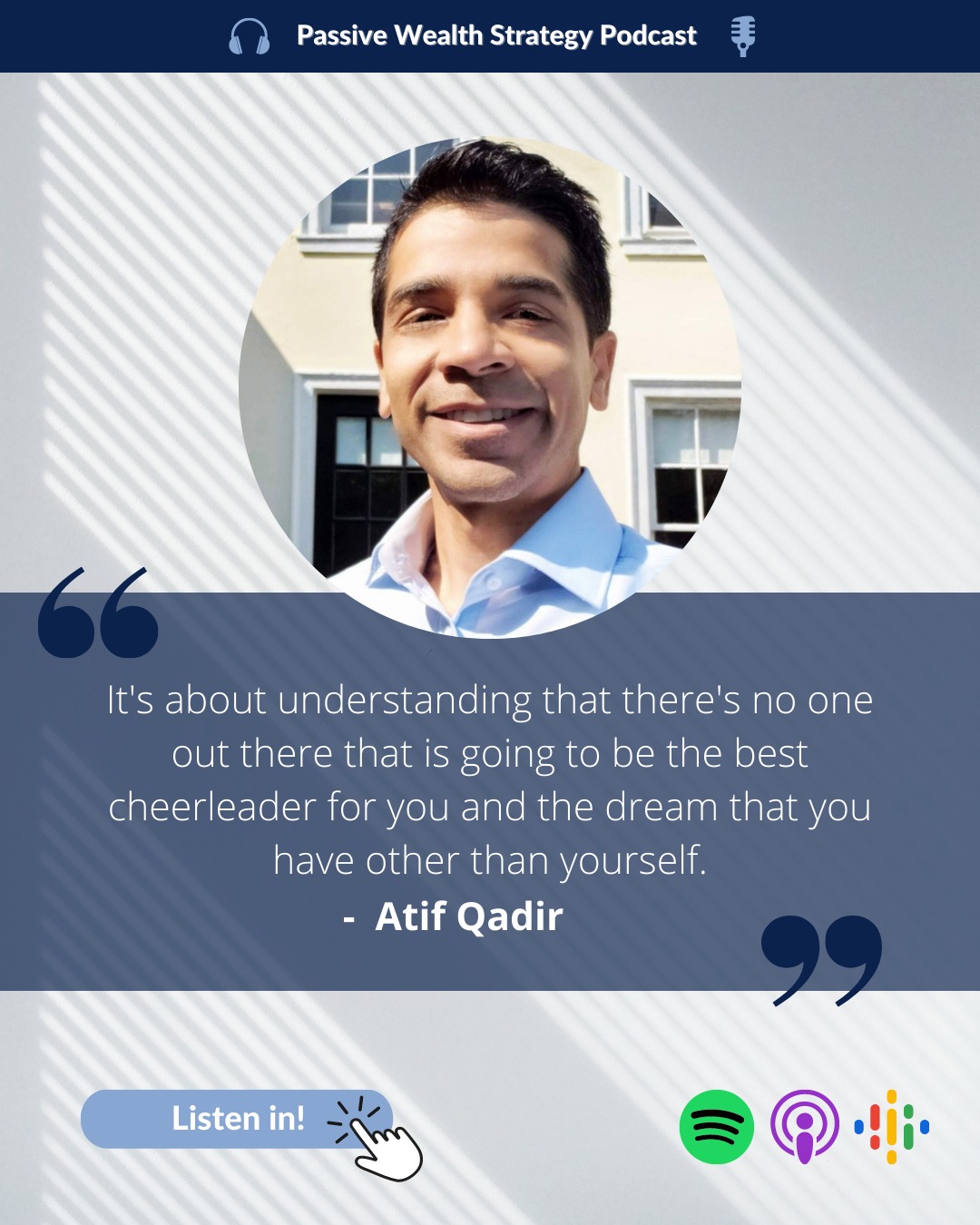
It's about understanding that there's no one out there that is going to be the best cheerleader for you and the dream that you have other than yourself.
Atif Qadir Tweet
Investments. And he said that is the most bad-ass thing that I’ve seen a founder do because it’s just honest and I wish more people our in our venture capital industry, we’re honest. So that’s a piece of advice, have advice that I’d have for any real estate folks trying to get into.
Interesting. I must say I’ve worked with passive investors for several years in my real estate business.
And that’s what we do is, raise money from passive investors to invest in real estate deals. But I feel I would be intimidated if you will to talk to venture capital investors about a startup that I was starting. I don’t know. Maybe it’s just a mental block, yeah. I think the reason being is that.
The art industry isn’t, wasn’t built on innovation. I say that a little tongue in cheek because in the end. Many things have transformed the American economy because of innovation in our industry. So the invention of steel and going from the iron to steel was absolutely what fueled the industrial revolution.
And it’s a big part of our industry. The ability to build taller, build lighter, build faster. Yes. A lot of it’s been innovation, but it’s important to remember the way that we poured concrete. Is the same way that the Romans did it terrazzo, the Greeks were doing terrazzo. So there are still aspects that reality that we’re not akin to, it’s not like in our DNA to innovate to a large degree, but I would say anyone in the real estate industry that feels that they can do something better.
Just remember that we are the largest industry. In the United States and our industry touches every other industry. So even if it’s the most minuscule innovation you can think of, there is an ability to scale that to an incredibly large degree. So anyone from the real estate, any real estate guy or gal with some idea, pursue it, go after it, try it.
Awesome. I love that. And before we, leave it and go to the three questions, ask every guest on the show, really want to sum it up, for the investors out there who think, Hey, I want. Start on taking advantage of some of these tax credits that are available and, just taking action on it.
How would you recommend people get started to, dive in?
Number one goes to the Redis website. So I’ve got to get somebody to say that. So R E D I S T U S a and sign up for our mailing list and we’ll keep in the loop when we start selling the product publicly. So right now we have a small close group of people we’re selling the product to, as we refine the product.
Number two is we have an awesome podcast that we co-produced with Michael Graves, architecture and design. So famous design firm in Princeton, New Jersey. It’s called American building podcasts. So totally check it out. We tell the stories of Famous and soon-to-be-famous developers that have used public financing on their projects.
You can hear it more in a narrative style. And I’ll say the last part would be just becoming a little bit more aware. Just start asking yourself the question about how do I capitalize mine. And are there opportunities to do something better? And if you’ve heard, if you’ve heard of tax credits, for example, if you heard of new market tax credits and you don’t know too much about it, just do yourself a favor, just Google it and just learn a little bit more about it so that when the time comes next year and we’re out offering a Rita services that you’ll be ready to go and ready to pounce to make the most of the deals that you’re working on.
Nice. I love that. And Google it, ask around, talk with people around you. You might learn something. I love that right now. We’re going to take a quick break for our sponsor. All right. I’ll. If I’ve got three questions, I ask every guest on the show. Are you ready? I’m ready. Let’s do it.
Great. First one. What is the best investment you ever made other than in your education?
I would say The best investment that I made that does not, that is not relative or not, including education would be the, it might be a little bit like of a twist in what your normal answers are, but.
Investment in myself to be able to spend a year or two without income to leave corporate America. And I think that was probably the best decision that I made because if I were, honestly, if I were still working on XL development, every single day, I’d wake up scared. Am I going to get fired today because of this change in the economy, this pandemic blah-blah-blah this economic issue?
So I think that’s probably the biggest. An investment that I made in myself is frankly losing a six-figure salary for two years to catapult. And now actually, frankly, make a lot more than I was making when I was at XL through the different things that I do. I would say that’s probably the answer that I’ll give to your question.
I liked that we had the best investment. Now we go to the other side of that coin and the worst investment. What is the worst investment you ever made?
So this is probably where I make a hot take is. I’m sure maybe many of the listeners wouldn’t agree with me or don’t agree with me fully is that higher education is universities particularly are hedge funds that offer education, a very expensive educational side hustle.
So I know it’s very rich for me to say that having two degrees from MIT and one from Columbia, but I would say. Especially for people that are now at this point where there are so many ways to get information and to get the education that doesn’t involve an Ivy league degree is to make sure that you understand what it is that you’re going to a university for and know what it is that you want to get out of it once you’re out the door at the other end that I think is what I would say.
I think that the decisions they made were fine, but I would say that, is that more like the piece of advice in that category that we’ll give folks that are, might be considering a master’s degree or some other type of degree? Yeah.
Nice. My favorite question here at the end of the show is what is the most important lesson you’ve learned in business and investing?
Okay. I would say the most important lesson is to wake up every morning and look in the mirror and say, Hey you are smart. You are important. Gosh, darn it. People like everything, but more seriously. I think it’s about understanding that there’s no one out there that is going to be the best cheerleader for you and the dream that you have other than yourself.
I think that’s probably the most important thing. And I’d say maybe tied with that. I would say one other would be is don’t. Live this conditional life. And what I mean by that is don’t live a life that is conditioned on you achieving this societal marker of success. And then you’re going to be happy or your life is conditioned on this person believing that you are successful and then you’re gonna be happy.
And I think that the more and more that you’re able to. Stand up on your own two feet and be your source of justification and happiness. And to understand that each of these days that you have ahead of you just being is fine as a baseline of being happy and not having to achieve for this and that everything else is a condition of being happy.
I think. All every one, all of your listeners, me, you will all be better off for that. And it doesn’t mean being a striver. It doesn’t mean that you should be sitting on your butt, not doing anything. It is just to reframe that the hustle is very different.
Nice. I like that reframe. And I think hopefully more people are catching on to that these days.
And I want to thank you for joining us today. You and I have been on the line for almost an hour and a half now, and we’ve had a great conversation. If folks want to reach out, if they want to get in touch with you, if they want to learn more or anything like that, where can they track?
Morse code Semaphore flags. None of this. It’s a LinkedIn. It’s just got to LinkedIn. I’m the only person with this name. Maybe there might be like one or two other people, but you quickly figure out which one I am. Just get me on LinkedIn DME. I reply pretty quickly.
Awesome. Thank you once again for joining us today to everybody out there.
Thank you for tuning in. If you’re enjoying the show, please leave us a rating and review on the apple podcast. I appreciate that so much. You guys help other people learn about the show because that helps us rank higher in the apple podcast ecosystem. And I’m always honest with you guys that gives me a nice little warm and fuzzy feeling.
Cause I get to see that you’re engaging with the content and you’re escaping wall street. Along with us. If you know anyone who could use a little bit more passive wealth in their lives, please share the show with them and bring them into the tribe. Don’t forget to subscribe and catch us here every Monday, Tuesday, and Thursday.
I hope you have a great rest of your week and we’ll talk to you on the next one. Bye-bye.

Funding Real Estate Deals with Public Financing
About our Guest
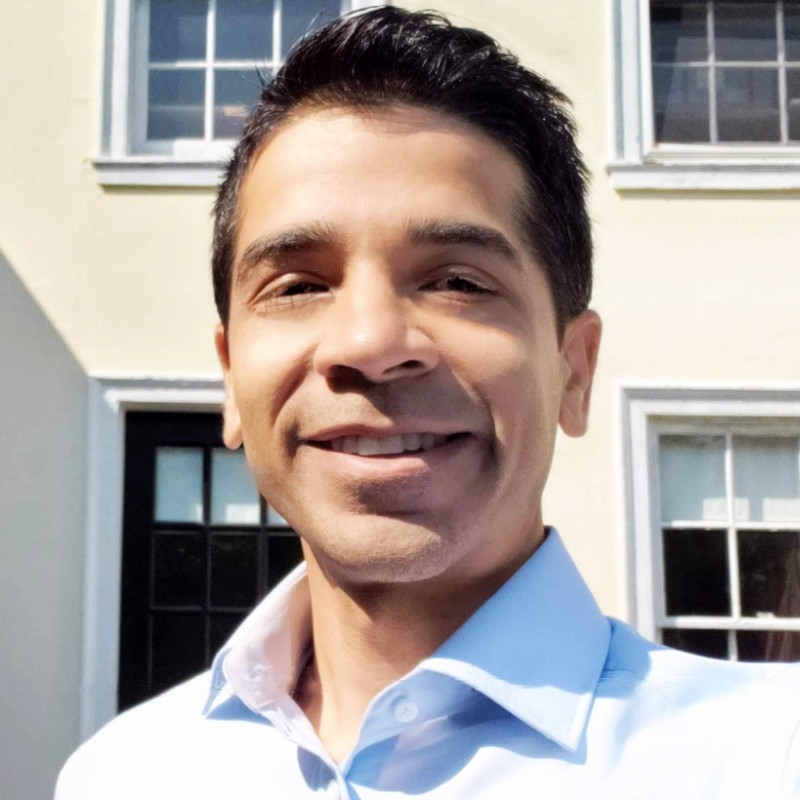
Atif Qadir
Atif Qadir founded REDIST, a proptech startup based at Columbia Startup Lab, in 2020 and Amanat Properties, a development company focusing on the renovation of historic real estate in New Jersey, in 2017. Previously, he was at Extell Development, where he was on the acquisitions and development teams for deals across the United States and Canada.Prior to that, he was at Turner Construction and at Gwathmey Siegel Kaufman & Associates Architects.
Episode Show Notes
Atif Qadir founded REDIST, a prop-tech startup based at Columbia Startup Lab, in 2020, and Amanat Properties, a development company focusing on the renovation of historic real estate in New Jersey, in 2017. Previously, he was at Extell Development, where he was on the acquisitions and development teams for deals across the United States and Canada. Prior to that, he was at Turner Construction and at Gwathmey Siegel Kaufman & Associates Architects.
[00:01 – 06:34] Opening Segment
- Get to know Atif Qadir
- Making financing easier for commercial real estate brokers, developers, and investors
[06:35 – 15:20] Funding Real Estate Deals with Public Financing
- How the government manages public financing for real estate
- Three Different Contexts of Syndication
- Syndications: Where you should begin
- Speed up and simplify the application process for your deals
[15:21 – 23:23] The Ultimate Syndication of Tax Credits
- How Atif and his team syndicate their tax credits
- Atif shares about his startup and getting into Venture Capital Investors
- What makes real estate and real estate investors so interesting
- Real Estate is Not Built on Innovation
[23:24 – 33:16] Closing Segment
- Quick break for our sponsors
- Groundfloor offers short-term, high-yield real estate debt investments to the general public. Check www.passivewealthstrategy.com/groundfloor/ to get started.
- What is the best investment you’ve ever made other than your education?
- Investing in himself with a twist
- Atif’s worst investment
- Higher education
- What is the most important lesson that you’ve learned in business and investing?
- “There is no one out there that is going to be the best cheerleader for you and the dreams that you have other than yourself.”
Connect with Atif Qadir through LinkedIn. Listen to the American Building Podcast, together with REDIST, and join them as they make public financing accessible.
Invest passively in multiple commercial real estate assets such as apartments, self storage, medical facilities, hotels and more through https://www.passivewealthstrategy.com/crowdstreet/
Participate directly in real estate investment loans on a fractional basis. Go to www.passivewealthstrategy.com/groundfloor/ and get ready to invest on your own terms.
Join our Passive Investor Club for access to passive commercial real estate investment opportunities.
LEAVE A REVIEW + help someone who wants to explode their business growth by sharing this episode or click here to listen to our previous episodes
Tweetable Quotes:
“Being a developer is not just being bad at Being a developer, it’s also being a janitor. It’s also being a babysitter. It’s also being the friendly neighbor.” – Atif Qadir
“As conservative as real estate investors imagine themselves to be, real estate investors are actually quite cavalier and quite forward-thinking imaginative in what they choose to invest in.” – Atif Qadir
“Don’t live this conditional life.” – Atif Qadir







